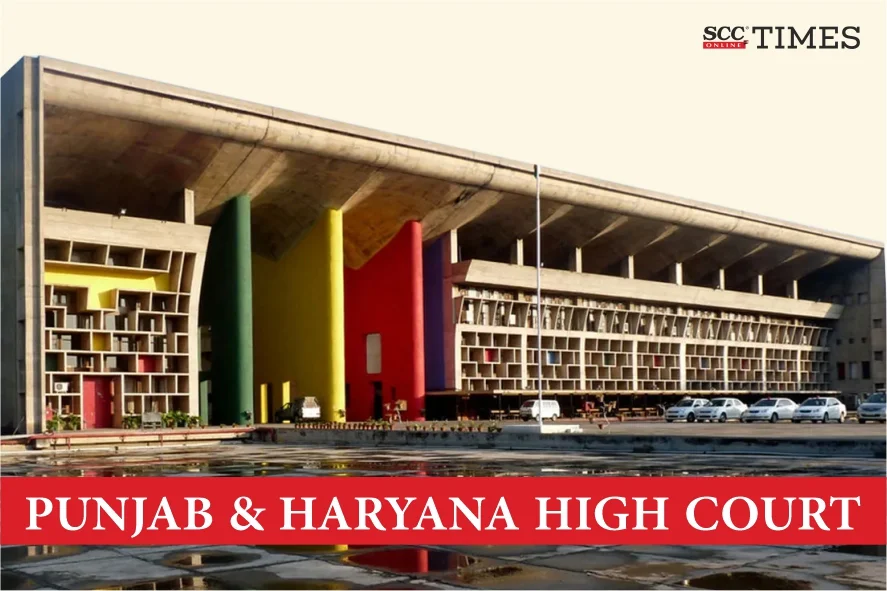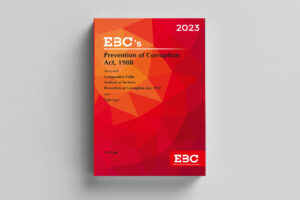Punjab and Haryana High Court: In an anticipatory bail application filed by a Junior Engineer for an FIR under Section 7 of the Prevention of Corruption Act, 1988 (‘PC Act’), a Single Judge Bench of Manjari Nehru Kaul, J., dismissed the application, holding that grant of bail at this stage may not only hamper the ongoing investigation, but may also send an inappropriate signal in cases involving abuse of public office for pecuniary advantage.
Background
The complainant sought to transfer his electric motor connections, originally in the name of his deceased grandmother, to his father’s name. Despite all requisite documents being submitted to the office concerned, the complainant was allegedly compelled to obtain a report from the accused herein, a Junior Engineer (‘JE’). The accused engineer not only redirected the complainant to another JE for the preliminary report but thereafter demanded a bribe of Rs. 1000 in exchange for signing off on the documents. A friend of the complainant, who accompanied him during this transaction, allegedly audio recorded the conversation where the demand and acceptance of a bribe are audible.
The said recording, along with its transcript, was submitted to the authorities and formed a crucial piece of the preliminary investigation conducted by the Vigilance Bureau, which ultimately led to the registration of the FIR under Section 7 of the PC Act. The Vigilance Bureau alleged that the accused engineer, while discharging his duties as Junior Engineer (JE), demanded and accepted illegal gratification to perform a task that fell squarely within his official responsibilities.
Analysis
The Court stated that prima facie, the allegations against the accused engineer were serious and carried significant weight. The accused engineer, a government official entrusted with public duty, allegedly abused his official position for personal gain by demanding a bribe to perform an administrative function, such as signing a file about a routine electric connection transfer application.
The Court remarked that such conduct, if proved, strikes at the very root of public administration and erodes the faith of the common man in the fairness of Government institutions. The demand for Rs. 1000 — however modest in quantum — is not to be seen in isolation, but must be viewed in light of the position held by the accused engineer and the context of the demand. The act of coercing an ordinary citizen to pay a bribe for availing a rightful service amounts to gross misconduct.
The Court stated that the contention that the audio recording was doctored could not be entertained at this stage. Additionally, the preliminary investigation indicated that the recording was considered alongside other corroborative evidence. The Court further stated that the authenticity and evidentiary value of the recording would, of course, be subject to scrutiny during trial. However, at this stage, the material placed on record disclosed a prima facie case under Section 7 of the PC Act.
The Court also remarked that mere absence of prior criminal antecedents or the argument that custodial interrogation may not be essential is insufficient to override the broader public interest involved in such cases. The grant of bail at this stage may not only hamper the ongoing investigation but may also send an inappropriate signal in cases involving abuse of public office for pecuniary advantage.
Thus, the Court concurred with the submission that the instant application be dismissed as the custodial interrogation of the accused engineer would be warranted.
Given the above, and considering the gravity of the offence, the nature of the material on record, and the position of the accused engineer as a public servant, the Court did not deem it fit to extend the extraordinary concession of anticipatory bail to him. The application was accordingly dismissed.
[Jaswinder Singh v. State of Punjab, 2025 SCC OnLine P&H 2289, decided on 07-05-2025]
Advocates who appeared in this case :
For the petitioner: Ashok K. Singla



